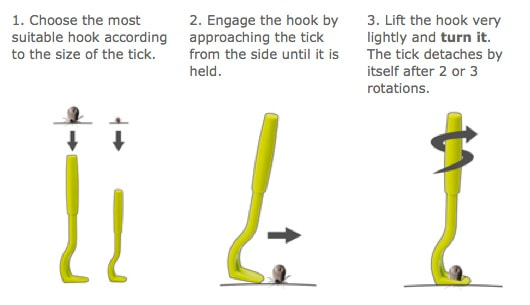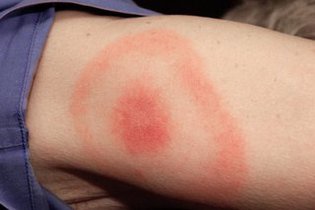Tick borne diseases
Britain has now had its first case of tick borne encephalitis (TBE) for which there is no treatment. It is rare in Britain but it is endemic in many European countries including Austria and Switzerland. A vaccine is available to prevent infection which needs be started at least two weeks before travelling. It is not currently available on the NHS but can be obtained at Superdrug or the Edinburgh Travel Clinic.
Superdrug
Edinburgh Travel Clinic
For details of the distribution of the disease, see the Centers for Disease Control and Prevention
Lyme disease, a potentially serious bacterial disease is also spread by infected ticks which are now common in the UK. It can be treated by large doses of antibiotics but it is by far better to avoid infection.
Check yourself for ticks and remove them properly. Removal tools are available at outdoor shops.
Do not simply pluck them off with your fingers.
Superdrug
Edinburgh Travel Clinic
For details of the distribution of the disease, see the Centers for Disease Control and Prevention
Lyme disease, a potentially serious bacterial disease is also spread by infected ticks which are now common in the UK. It can be treated by large doses of antibiotics but it is by far better to avoid infection.
Check yourself for ticks and remove them properly. Removal tools are available at outdoor shops.
Do not simply pluck them off with your fingers.
The area should be disinfected before and after removal.
Prevention:
Ticks are at their most prolific in summer.
Long trousers should be worn.
Light coloured clothes make ticks easier to spot.
Clothes and skin can be sprayed with permethrin and DEET respectively.
Check you body carefully in the shower after a day out.
Prevention:
Ticks are at their most prolific in summer.
Long trousers should be worn.
Light coloured clothes make ticks easier to spot.
Clothes and skin can be sprayed with permethrin and DEET respectively.
Check you body carefully in the shower after a day out.
Many people with early symptoms of Lyme disease develop a circular red skin rash around a tick bite.
The rash can appear up to 3 months after being bitten by a tick and usually lasts for several weeks. Most rashes appear within the first 4 weeks.
Not everyone with Lyme disease gets the rash. Both TBE and Lyme disease have flu-like symptoms in the early stages, such as:
The risk of transmission of Lyme disease is thought to be very low in the first 24 hours.
Taking antibiotics "just in case", after a tick bite is not currently recommended.
The normal incubation period for Lyme disease is two to thirty days but bacteria can lie dormant in the body without causing disease straight away.
NHS advice on Lyme disease
NHS advice on TBE
The rash can appear up to 3 months after being bitten by a tick and usually lasts for several weeks. Most rashes appear within the first 4 weeks.
Not everyone with Lyme disease gets the rash. Both TBE and Lyme disease have flu-like symptoms in the early stages, such as:
- a high temperature, or feeling hot and shivery
- tiredness & loss of energy
- sensitivity to sound and light
- headaches
- muscle & joint pain
The risk of transmission of Lyme disease is thought to be very low in the first 24 hours.
Taking antibiotics "just in case", after a tick bite is not currently recommended.
The normal incubation period for Lyme disease is two to thirty days but bacteria can lie dormant in the body without causing disease straight away.
NHS advice on Lyme disease
NHS advice on TBE


